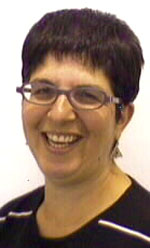
you would think there would be a moment
when loss had travelled so far
it couldn’t come back anymore
whoever-has-dunnit is now behind bars
the witnesses, jury, pack up, open doors
and go home
his feet dragged his hopes back
to his homeland
but when he arrived
the hills turned their backs
it wasn’t very cinematic
sometimes the day’s lens
seems smeared
unnecessarily tense
unnecessarily unforgiving
a woman folds silk blouses into her suitcase
she knows (though we don’t)
she is moving towards her death
a man paces up and down on a railway platform
exuding diasporic longings
their sentence was a search for twenty years
then they found out she’d been murdered
before they even started looking
I don’t know who I was then
or even who I would have wanted to be
it could be a symbol she says
stifling a youthful giggle
it made good television
the two holocaust survivors who married
kept locked in adjacent frames the ghosts
of those that they would never bury
meanwhile the Indian child you are sponsoring
stares back critically at your silence
bombs fall from previous lives
the camera, like allegory, chokes on alibis

Hazel Smith
Hazel Smith is a writer, performer and new media artist. She has published two volumes of poetry, Abstractly Represented and Keys Round Her Tongue, three CDs of performance work and numerous new media works. Her next volume of poetry with CD Rom, The Erotics of Geography, will be published by Tinfish Press in 2007. Hazel is also a Senior Research Fellow in the School of Creative Communication, University of Canberra, and a member of the Sonic Communications Research Group. She is author of The Writing Experiment: strategies for innovative creative writing, Allen and Unwin, 2005 and Hyperscapes in the Poetry of Frank O’Hara: difference, homosexuality, topography, Liverpool University Press, 2000; she is also co-author of Improvisation, Hypermedia And The Arts Since 1945, Harwood Academic, 1997.